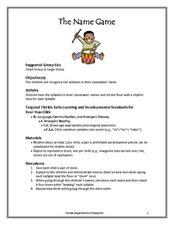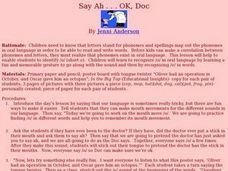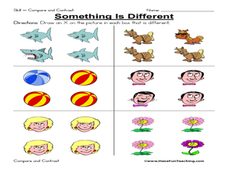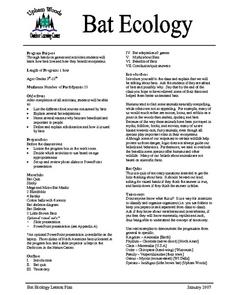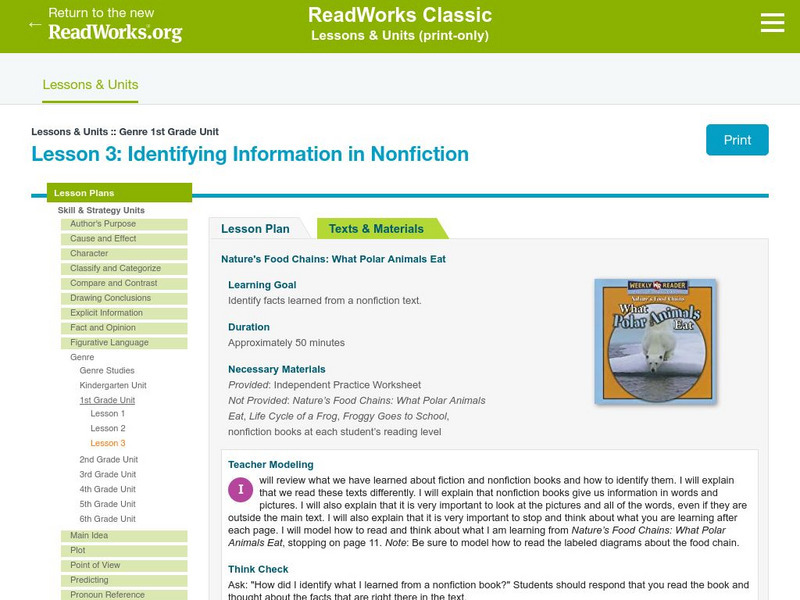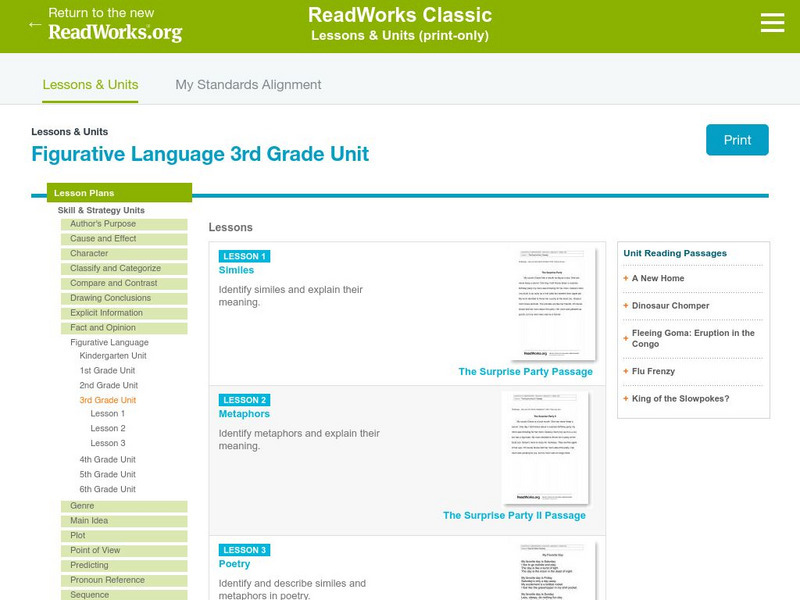Curated OER
The Name Game
Students identify animals and their babies. In this animal name lesson plan, students come up with other animals whose babies have the same name. Students use the names of animals and their babies to write poems.
Curated OER
Report Writing in Primary Grades
Learners learn how to read a short section and parepare a sentence to share with the group. Students listen to the reading of expository text, restate, in sentence format, one fact learned from that text, and produce a report.
Curated OER
Say Ah . . . OK, Doc
Students distinguish between letters that stand for phonemes that deal with the short /o/ sound. They study how spellings map out the phonemes in oral language in order to be able to read and write words. Each student practices the...
Curated OER
Something is Different: Same/Different
In this different/same activity, student draw an X on the picture in a box that is different from the others, 6 sets total. A reference web site is given for additional activities.
Curated OER
Idiom Games
Students identify idioms as groups of words with special meanings that paint a mental picture for the reader.They compete in a game in which they draw and interpret pictures of idioms.
Curated OER
Language Arts: Then and Now
First graders hear Great Grandma and I. They locate objects representing then (seed) and now (tomato). They make then and now charts for members of their families.
Curated OER
Then and Now
First graders explore teacher created exploration tub, charts and cards to explain the concept of "Then and Now."
Curated OER
Bat Ecology
Young scholars, through hands on games and activities, discover how bats live and how bats benefit ecosystems. They play a game designed to show them how echolocation works and another to show how mother bats locate their young through...
Curated OER
Report Writing in Primary Grades
Students listen and restate facts from a text. They gather and organize information as a class. They create a report and present it to their classmates.
Read Works
Read Works: 1st Grade Lesson: Purposes for Reading
[Free Registration/Login Required] A lesson in which students use the books Nature's Food Chains: What Polar Animals Eat by Joanne Mattern, Life Cycle of a Frog by Angela Royston, and Froggy Goes to School by Jonathan London to learn to...
Read Works
Read Works: 1st Grade Lesson: Classifying Texts
[Free Registration/Login Required] A lesson in which students use the books Froggy Goes to School by Jonathan London and Life Cycle of a Frog by Angela Royston to learn to classify texts as fiction or nonfiction. Lesson includes direct...
Read Works
Read Works: Genre 1st Grade Unit: Identifying Information in Nonfiction
[Free Registration/Login Required] A lesson in which students use the books Nature's Food Chains: What Polar Animals Eat by Joanne Mattern, Life Cycle of a Frog by Angela Royston, and Froggy Goes to School by Jonathan London to learn to...
Read Works
Read Works: Figurative Language 3rd Grade Unit
[Free Registration/Login Required] In this three-lesson plan unit, students use the book If You Hopped Like a Frog by David Schwartz and some additional short texts to learn to identify and understand the use of simile and metaphor in...
Read Works
Read Works: 3rd Grade Lesson: Metaphors
[Free Registration/Login Required] A lesson in which students use the book If You Hopped Like a Frog by David M. Schwartz and an additional short text to learn to identify and understand the use of metaphor in fiction. Lesson includes...


